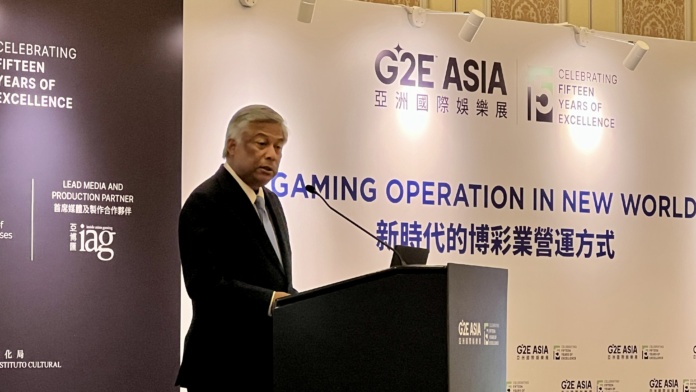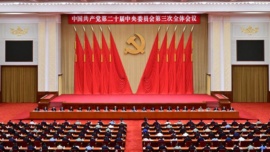The Philippine gaming industry has shown resilience in adapting to a more regulated environment while exploring alternative markets to maintain its growth and sustainability, even in the absence of Chinese tourists.
The message comes fresh from Alejandro H. Tengco, chairman of the Philippine Amusement and Gaming Corporation (PAGCOR), who was in town on Thursday for the three-day Global Gaming Expo (G2E) Asia.
In a keynote speech, the head of the Philippine gaming regulator reiterated its plan to start privatising around 50 casinos by the last quarter of 2025 or around the first quarter of 2026.
Meanwhile, PAGCOR is currently seeking to remove itself from the grey list of the Financial Action Task Force, a global anti-money laundering watchdog.
Underscoring the Southeast Asian country’s commitment to preventing ill-gotten gains, Tengco said PAGCOR’s two-pronged approach covers two areas: risk-based supervision and junket operations.
“The measures include new but more stringent regulatory policies that thus far resulted in a 50 percent decrease in internet gaming licensee applications, the refusal of three junket operator applications, and a 137 percent increase in suspicious transactions reports made by junket operators,” he told conference attendees.
Attendees were also informed that since Tengco took office in late 2022, intelligence provided by PACOR to law enforcement had resulted in 10 successful operations involving internet gaming licensees and employees.
“To date, we have penalised 65 internet gaming licensees and service providers since I assumed office and have collected a staggering 3 million U.S. dollars in fines and penalties,” he stressed.
The Philippines looks beyond the Chinese market
The Philippine Department of Tourism reported an increase in arrivals from mainland China in the first quarter, with arrivals up 150 per cent year-on-year to 109,568. The figure is just about 24 per cent of the 2019 level.
Speaking to MNA on the sidelines of the event, the head of the regulatory body said that Chinese gamblers were not the only market the industry depended on.
“Well, definitely, one way or the other, the non-arrival of Chinese tourists is also affecting our customer base. But despite it all, you can see we have other markets that have been supporting the Philippine casinos,” he said, referring to players travelling from Korea, Japan, Singapore and Malaysia.
“I would want to say that definitely if the Chinese tourists will come to the Philippines, then there will definitely be a better performance for PAGCOR,” he added.
“We are trying our best to be able to mitigate the absence of the Chinese tourists by attracting more people to come. In fact, not only from Asia.”





















